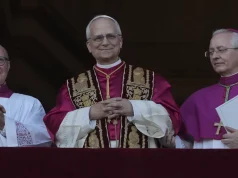Leadership within the government sector is akin to captaining a vessel through the ever-shifting currents of public opinion, policy, and international relations. It requires a deft hand, a clear vision, and an unwavering commitment to the public good. Unlike their counterparts in the private sector, government leaders must steer the ‘Ship of State’ with a deep understanding of the unique challenges and responsibilities that define their roles.
Historically, successful government leadership has manifested in various forms, depending on the context and era. For instance, President Franklin D. Roosevelt’s New Deal displayed visionary leadership during a time of economic despair, while Prime Minister Winston Churchill’s unwavering resolve during World War II demonstrated the power of inspirational leadership in the face of adversity. Each leader utilized a combination of foresight, decision-making skills, and a palpable connection to the needs and sentiments of their people.
In the current socio-political climate, effective government leaders require a sophisticated blend of skills and traits. Adaptability, transparency, and strategic thinking are indispensable in a world where policies must evolve at the pace of technological advancement and global interconnectivity. Furthermore, modern leaders must maneuver through a landscape marked by heightened scrutiny and demands for accountability, all while managing limited resources and political opposition.
The role of a government leader is also distinct in how it deals with the public. Policy decisions can have sweeping effects on millions of lives, making the ethical considerations and accountability of leadership particularly weighty. A leader must navigate these challenges while balancing competing interests and priorities, such as those between national security and individual freedoms, or economic growth and environmental sustainability.
The strategies employed by successful leaders often involve consensus-building, empathetic communication, and an inclusive approach that fosters trust among diverse groups. They maintain a pulse on public sentiment and articulate a clear, compelling vision that aligns with their constituents’ values and aspirations.
Looking ahead, the future of government leadership seems poised for transformation as new challenges loom on the horizon. Upcoming leaders must prepare for the complexities of cyber-security, climate change, and an increasingly interconnected global community. Drawing lessons from the past, they must also foster innovation, collaboration, and resilience to navigate the uncertainties of the future.
Our in-depth feature will provide readers with a comprehensive exploration of what it takes to be an effective government leader today and beyond. Through interviews with current and former leaders, case studies, and analysis from subject matter experts, we will demystify the art and science of public sector leadership. We aim to elucidate the often-underrated intricacies of commanding the Ship of State in hopes of inspiring a new generation of leaders who are as principled as they are pragmatic, as visionary as they are grounded in reality.
Join us as we embark on this exploration, understanding that the journey of government leadership is one that continuously shapes the lives of workers, workplaces, and the very fabric of our society.

























